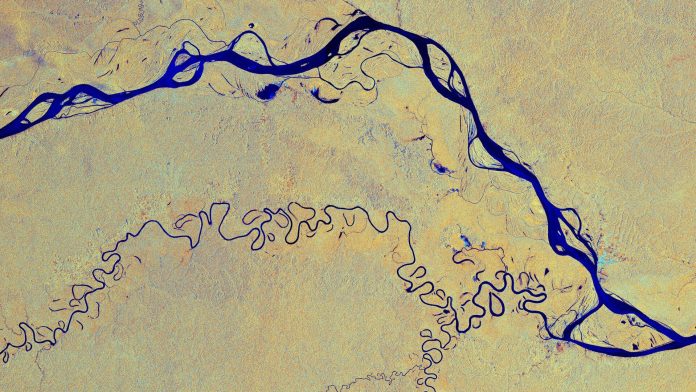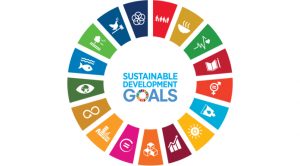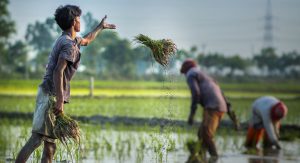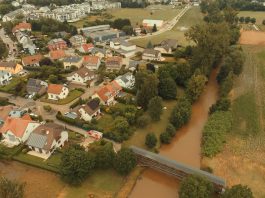Margherita Bruscolini, Geospatial & Earth Scientist at RSS-Hydro, explains how its technological solutions can help businesses to achieve sustainable development practices.
Sustainability is a widely discussed topic of this decade, attracting the attention of almost every segment of society, from politics to media, from NGOs to public institutions, and, more recently, private businesses. Becoming more sustainable is a necessity, but it is certainly not an easy transition since it implies synergies among different actors (governments, citizens, civil society, investors, and businesses) on different levels, as stated in the latest IPCC report1.
The report highlights the climate-resilient development concept, necessary to meet societal and environmental goals, which is as a combination of adaptation, mitigation, and sustainable development practices. Moreover, it is becoming clear that current unsustainable development patterns and climate change are increasing exposure of ecosystems and people to climate hazards, such as floods, droughts, wildfires and earthquakes, to name a few.
Sustainable Development Practices
The United Nations Sustainable Development Goals (SDGs) are targets for global development that many countries of the world have agreed to achieve by 2030. They help delineate a path towards a more sustainable future for all.
Reducing the impact of a business on the environment and society is also considered vital for improving its image and perception by other businesses and society. Today, people’s attention to the quality and carbon footprint of products and services they choose to buy is increasing and society is experiencing a transition towards more sustainable solutions and investments, albeit slow.
People choose a specific product not only for its quality but also for the idea behind it, as well as the environmental footprint of its production and distribution chain. Therefore, aligning activities closely with the SDGs allows businesses to understand and better overcome global risks and, at the same time, increase profit margins. As a recent PwC report highlights, companies that show a strong leadership on the SDGs will be most likely to win the support of stakeholders, investors, consumers, and society2.
Measuring progress towards the Sustainable Development Goals is not an easy task, however, since they are interlinked and sometimes perceived as too vague or overambitious, especially the first two: SDG 1, no poverty, and SDG 2, zero hunger. The SDG tracker3, developed by Our World in Data, is beneficial here. It is a free, open-access tool to track global progress made towards the 17 goals, 169 Targets, and 232 Indicators.
Like other companies around the world, RSS-Hydro is determined to achieve a real impact for a number of SDGs, including several of them in their mission and business activities. The company uses remote sensing technologies (Earth observation satellites, drones), computer modelling, and Artificial Intelligence (AI) to develop sustainable service solutions under a changing climate that help customers act responsibly and become more resilient to extreme events, such as floods. RSS-Hydro’s activities revolving around water risks and climate change align with several SDGs, especially with goals 11, 13, and 17.
Sustainable cities and communities
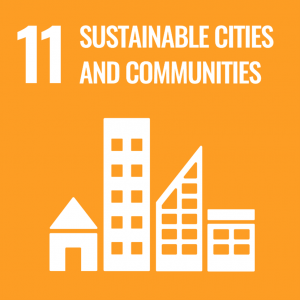 The Sustainable Development Goal 11, sustainable cities and communities, with its ten Targets and 15 Indicators, advocates for “making cities and human settlements inclusive, safe, resilient and sustainable”, while reducing the number of vulnerable people affected by disasters.
The Sustainable Development Goal 11, sustainable cities and communities, with its ten Targets and 15 Indicators, advocates for “making cities and human settlements inclusive, safe, resilient and sustainable”, while reducing the number of vulnerable people affected by disasters.
RSS-Hydro is actively contributing to this goal, and more specifically to Target 11.5, by improving the understanding of multi hazards and climate change impacts using geospatial technologies and producing complete flood risk analysis and maps for municipalities at the impact level. With bespoke local high-resolution flood risk maps, municipalities can better manage flood risk by being able to examine buildings, roads, and areas at risk, with the aim of supporting future urban planning and to better respond to emergencies.
Climate action
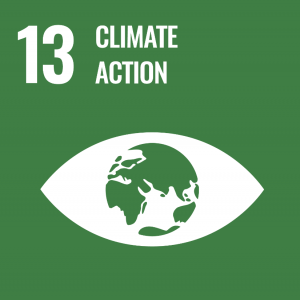 The Sustainable Development Goal 13, climate action, with its five Targets and eight Indicators, advocates for taking “urgent action to combat climate change and its impacts”, while strengthening “resilience and adaptive capacity to climate-related hazards and natural disasters in all countries” (Target 13.1). RSS-Hydro contributes to this goal in several ways:
The Sustainable Development Goal 13, climate action, with its five Targets and eight Indicators, advocates for taking “urgent action to combat climate change and its impacts”, while strengthening “resilience and adaptive capacity to climate-related hazards and natural disasters in all countries” (Target 13.1). RSS-Hydro contributes to this goal in several ways:
- Working on understanding climate influence on hazards and the role of natural processes and human activities;
- Modelling and mapping floods, and providing complete risk analysis under different climate scenarios at local scales for municipalities, private companies, and humanitarian organisations;
- Participating in global projects supporting mitigation and risk reduction strategies;
- Providing scientific advice to inform policy, urban planning, and nature protection;
- Communicating the science of how natural processes and anthropogenic activities contribute to climate change with scientific papers, articles, and using social media platforms; and
- Raising awareness at local community level, within projects, workshops, and capacity-building activities.
Partnerships
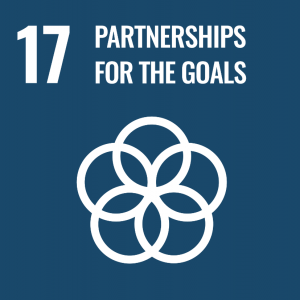 The Sustainable Development Goal 17, partnerships for the goals, with its 19 Targets and 25 Indicators, calls for strengthening “the means of implementation and revitalising the global partnership for sustainable development.3 As a young international company, RSS-Hydro is built on global partnerships collaborating for a more sustainable future. The company contributes specifically to Target 17.16 by:
The Sustainable Development Goal 17, partnerships for the goals, with its 19 Targets and 25 Indicators, calls for strengthening “the means of implementation and revitalising the global partnership for sustainable development.3 As a young international company, RSS-Hydro is built on global partnerships collaborating for a more sustainable future. The company contributes specifically to Target 17.16 by:
- Building a global network of public and private organisations, as well as NGOs and UN agencies;
- Integrating perspectives from local communities during projects;
- Engaging with UN Major Groups, such as ARISE, a private sector alliance for disaster-resilient societies led by the UN Office for Disaster Risk Reduction (UNDRR), and the WFP Drones Technical Working Group; and
- Including capacity building into global partnerships, with clear objectives and accountability.
References
1 IPCC, 2022: Climate Change 2022: Impacts, Adaptation, and Vulnerability. Contribution of Working Group II to the Sixth Assessment Report of the Intergovernmental Panel on Climate Change [H.-O. Pörtner, D.C. Roberts, M. Tignor, E.S. Poloczanska, K. Mintenbeck, A. Alegría, M. Craig, S. Langsdorf, S. Löschke, V. Möller, A. Okem, B. Rama (eds.)]. Cambridge University Press. In Press
2 PwC’s SDG Challenge 2019
3 Ritchie, Roser, Mispy, Ortiz-Ospina. “Measuring progress towards the Sustainable Development Goals.” SDG-Tracker.org, website (2018)
Please note, this article will also appear in the tenth edition of our quarterly publication

